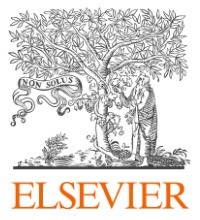Pharmacological Research
Volume 113, Part A, November 2016, Pages 108–115
Abstract
 Cannabinoids, endogenous and exogenously administered, are known to positively regulate food intake and energy balance. Since CB1 receptor antagonists reduce food intake and antagonize overweight, we developed a new CB1 receptor antagonist in an attempt to identify a compound with potential application in overeating disorders. The newly developed SM-11 compound dose-dependently decreases food intake in rats by 15–20%. Moreover, SM-11 reduces self-administration of palatable food in both food restricted and ad libitum fed rats, suggesting an action on the hedonic component of food intake. Thus, we next tested the effect of SM-11 on the stimulating properties of the CB1 receptor agonist WIN55,212-2 (WIN) on the electrophysiological activity of Nucleus Accumbens-projecting dopaminergic neurons of the ventral tegmental area (VTA). SM-11 fully and readily antagonized the WIN-induced increments in single spiking and burst firing of antidromically-identified dopamine neurons. When administered to naïve (no WIN-pretreated) rats, SM-11 did not alter basal neuronal activity, thereby suggesting a pure antagonistic profile. SM-11 thus appears as a promising candidate in the search of potential anti-obesity medications.
Cannabinoids, endogenous and exogenously administered, are known to positively regulate food intake and energy balance. Since CB1 receptor antagonists reduce food intake and antagonize overweight, we developed a new CB1 receptor antagonist in an attempt to identify a compound with potential application in overeating disorders. The newly developed SM-11 compound dose-dependently decreases food intake in rats by 15–20%. Moreover, SM-11 reduces self-administration of palatable food in both food restricted and ad libitum fed rats, suggesting an action on the hedonic component of food intake. Thus, we next tested the effect of SM-11 on the stimulating properties of the CB1 receptor agonist WIN55,212-2 (WIN) on the electrophysiological activity of Nucleus Accumbens-projecting dopaminergic neurons of the ventral tegmental area (VTA). SM-11 fully and readily antagonized the WIN-induced increments in single spiking and burst firing of antidromically-identified dopamine neurons. When administered to naïve (no WIN-pretreated) rats, SM-11 did not alter basal neuronal activity, thereby suggesting a pure antagonistic profile. SM-11 thus appears as a promising candidate in the search of potential anti-obesity medications.
Abbreviations
- FR-1, fixed ratio 1;
- NAc, nucleus accumbens;
- SM-11, 8-chloro-N-cyclohexyl-1-(2,4-dichlorophenyl)-4,5-dihydrobenzo-1H-6-oxa-cyclohepta[1,2-c]pyrazol-3-carboxamide;
- SR-141716A, N-piperidino-5(4 cholorophenyl)-1-(2,4-dicholophenyl)-4-methylpyrazolel carboxamide (Rimonabant);
- THC, △9-tetrahydrocannabinol;
- VEH, vehicle;
- VTA, ventral tegmental area;
- WIN, WIN55,212-2
Keywords
- Cannabinoid CB1 receptor antagonist;
- Food intake;
- Obesity;
- Overweight;
- Dopamine neurons;
- Reward
© 2016 Elsevier Ltd. All rights reserved.



